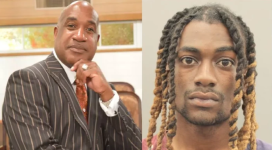
Debates about exactly how to teach religion to Tennessee public school students are rocking the state's school districts to their cores, with activists and concerned parents saying they worry middle school students are being "indoctrinated" with a sanitized version of Islam. Tennessee legislators got involved, and determined that educators could still teach students about religion, but not in any way that proselytizes, under a bill that passed the state House on Monday night.
One legislative proposal from Columbia Republican Sheila Butt suggested the discussion of religion be restricted until the end of high school. However, representatives approved the anti-proselytization bill with an 82-2 vote, reports the Times Free Press.
Tennessee Senate representatives are still considering the companion bill, which lawmakers are pushing in response to a furor among some Christian conservatives over how Islam is taught in public middle schools.
The first thing to understand is, Islam is not the only religion middle schoolers learn about, reports the Nashville Public Radio. Students at Antioch's Apollo Middle School have covered seven different faith groups since August, for example.
Class lessons and activities revolve around various religions' founding figures, places of origin, common practices and basic beliefs.
Opponents of the religion-based classes indicate they believe the lessons are designed to downplay Islam's negatives and present it in a favorable light. They want textbooks returned to their publishers and Tennessee's social studies standards rewritten, reports Nashville Public Radio.
The new piece of legislation is in direct response to many of our constituents who have been concerned about the way religion has been taught in Tennessee schools, said Rep. Matthew Hill, R-Jonesborough, the bill's sponsor.
Hill told the Times Free Press the concern "is about the possible indoctrination."
Among other things, Hill said, the bill says discussion of world religions "shall be for educational purposes only and shall not be to proselytize or to institutionalize any religion or religious belief."
State education officials are conducting a review of how religion is taught. The bill also requires systems make available to the public what materials are used.
Julie Mauck, who has children in the Williamson County school system, including twins in seventh grade, told Nashville Public Radio she believes schools aren't the place for 12- and 13-year-olds to learn about faith. "I mean, being a Christian, I don't necessarily want the public school system teaching my children their version of Christianity."
Mauck said the class "whitewashes the history," with "barely a mention of jihad. I don't think there is a mention of caliphate and what their objective is."
Examples of the religions currently covered in the curriculum include Christianity, Islam, Buddhism, Judaism, Confucianism, Daoism, African, Protestant Reformation, as well as the beliefs of Native Americans and Japan's Shinto faith.







